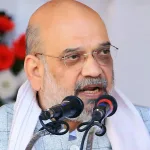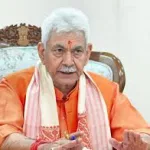The issue of mental health has not only gained a profound attention in the past many years but also inflicted a multifaceted challenge that affects individuals, families, and communities across the world.
Mental health encompasses a broad spectrum of conditions which include anxiety disorders, depression ,schizophrenia , bipolar disorder, PTSD etc.
In the contemporary world the issue of mental health has emerged as one of the most pressing aspects fostering severe complexities and challenges.
According to the Psychiatric experts the issue of mental health can be addressed by adopting a comprehensive and inclusive approach and inculcating an essential component of ‘open dialogue’ , implementing preventative measures, timely intervention, to tackle the crucial issue.
In recent years, Kashmir valley has also seen a considerable upsurge in the cases of mental health issues. The psychiatric experts in the valley are of the opinion that the improved infrastructure and unparalleled efforts instigated by the fraternity has fostered a better understanding, prevention and redressal of the issues pertaining to mental health.
“When I got into psychiatry, we used to see only psychotic patients. We used to see 20 patients at the maximum. This was in the scene during early 90’s”, Dr Maqbool Ahmad Dar, Head of the Psychiatry Unit at Government Medical College (GMC) Srinagar said.
Adding, “However during the past many years the number of patients has undoubtedly gone up. There are multiple reasons behind this. Today, people are well aware about mental health, Psychiatry and issues related to it. Nowadays awareness programs are held in schools, colleges, universities or even the psychiatric departments conduct such events or programs. People have become conscious with more knowledge and insight about the crucial topic of mental health.”
In Kashmir valley there are two govt run institutions providing mental care services, these include the prominent Psychiatric Institute at Kathidarwaza Srinagar and the Psychiatry unit at SMHS Srinagar where the patients with mental issues receive treatment.
“At GMC , patients suffering from addiction are admitted. There we have an outdoor patient department (OPD) for addiction, General psychiatry and a child psychiatry unit,” Dr Maqbool said.
He said that one of the prominent features at the GMC was Oral Substitution Therapy (OST) given to those patients who indulge in usage of drugs like Brown sugar, Charas etc.
“At present we see around 100 to 200 patients at Kathidarwaza institute and the same number of patients at GMC’s psychiatry section. I think we are seeing the tip of the iceberg at govt hospitals as a significant number of patients prefer private doctors or clinics for the treatment,” HOD stated.
“ Moreover neurologists and cardiologists also see psychiatric patients , they prescribe psychiatric drugs only. It won’t be wrong to see that 90 percent of the patients that neurologists see are psychiatric patients”, he added.
As the world observed the Mental health day on October 10, The theme of the mental health day was based on the slogan that ‘Mental health is the universal human right’ which promotes the availability of basic rights to those dealing with this issue.
“ Psychiatric patients have their own rights as per the mental healthcare services act 2017. They possess a ‘Right to live in the community’. They have a Right to access mental health Service, such as a better and professional service, They have a right that they should not be inflicted any cruel treatment. They possess a right to information to access their records. Therefore these are some of the basic rights”, Dr Maqbool said.
He said, “However it is ironic and saddening to see people leaving behind the chronic patients at the hospitals , avoiding, ignoring and neglecting them. Their family members completely ignore them. They are left at the mercy of the hospital. While they possess a right to live in the community as per the mental healthcare act 2017.”
He reiterated that the infrastructure has witnessed a complete transformation and was at par with the prominent psychiatric institutions in the country
The experts believe that the mental health infrastructure has seen a paramount improvement and is at par with the best psychiatry units in the country.
“I recently happened to visit PGI Chandigarh. I noted that our ECT (Electroconvulsive Therapy) section is better than theirs. We have visited psychiatry departments and institutes across the country. Our infrastructure is far better than other states. Whenever we have visitors from outside , they are taken aback on seeing our improved infrastructure and facilities”, Dr Maqbool revealed.
Commending the introduction and success of Tele- Psychiatry services , Dr Maqbool said, ‘To extend our reach and address the issue in a more comprehensive way, we launched the teli-pyschiatery services through our own mobile phones. We started both online and offline initiatives. Tele Manhas was a big success as it catered to patients 24 hours. There are counselors, psychiatrists, psychologists available to the patients dealing with any sort of mental illness.”
On the eve of Mental Health Day the psychiatry departments conduct awareness programs , camps to disseminate information and instill awareness among the masses.
“We visit schools in an effort to create awareness regarding this issue. We involve school students, college students and university students , students from medical colleges , in our endeavour. We are trying to do our best to deliver the best possible services from our side,” he said.
The experts attributed the ratio of the male and female patients to the disorder and the diagnoses.
“ For instance bipolar disorder is common among both men and women. If we talk of depression it goes by the ratio of 2:1 as depression is more common among women folk which might be because of hormonal changes or the situation inflicted upon by the patriarchal society. HOD stated.
He said that the most common diagnosis was that of depression followed by the anxiety disorders.
According to the psychiatrists in the valley, psychiatric issues have evolved owing to the changing patterns of life. They said that transforming lifestyle has played a major role in inflicting and aggravating psychiatric issues.
They said that isolation , cut throat competition, changing lifestyle, materialistic cravings, have steered upsurge in mental health issues.
Expressing his views on addressing the mental health issues, Dr Yasir Rather, Professor Psychiatry at GMC Srinagar said that the mental health conditions have increased in recent years . He said that the Post pandemic lockdown saw a noteworthy increase in substance use, cases of depression and anxiety and mental health conditions in adolescents like poor self esteem, body image issues, anxiety and disinterest in academics.
“The most crucial initiative to be taken as a society is to reduce the stigma associated with mental health. We must promote open conversations and awareness to help people feel comfortable seeking help. Implement mental health education programs in schools and workplaces to increase understanding and early intervention. Ensure affordable and accessible mental health services, including therapy, counseling, and medication. Expand telehealth services for mental health to reach underserved areas and populations.” Dr Yasir said.
He opines that a comprehensive approach is required to create a more inclusive and effective mental health support system.
“There is a need to encourage families and friends to be supportive and informed about mental health issues. “ he said.
“ Mental health issues can affect individuals of all genders. Some disorders, such as anxiety and depression, are more commonly reported among women, while others like substance use disorders are often seen in males. In children, there is a spectrum of disorders, including ADHD, conduct issues, and body image concerns.” Dr Yasir added.





